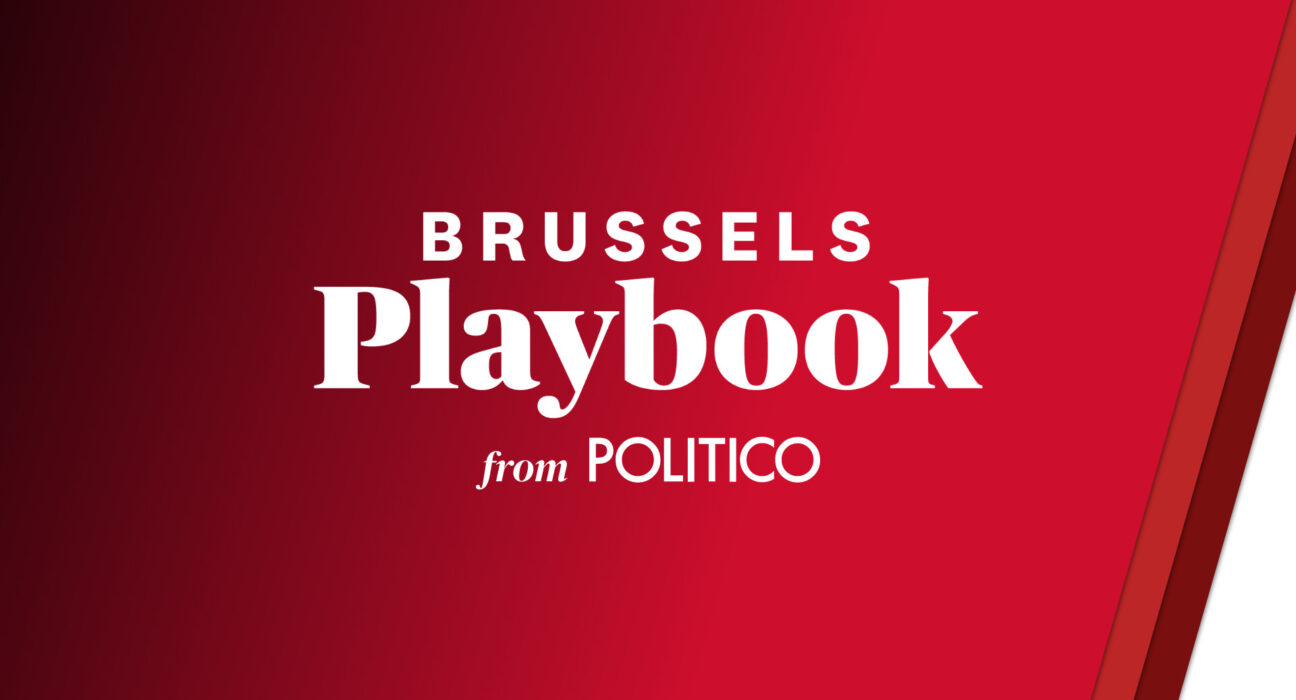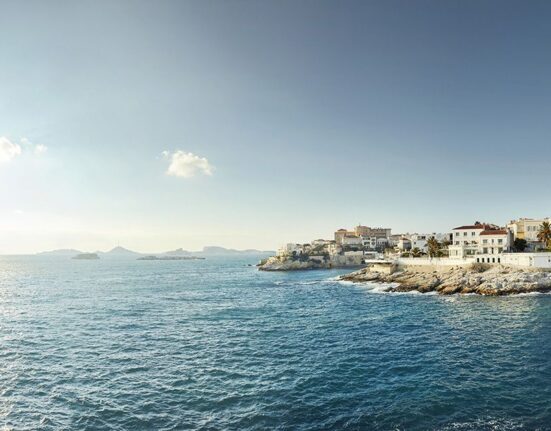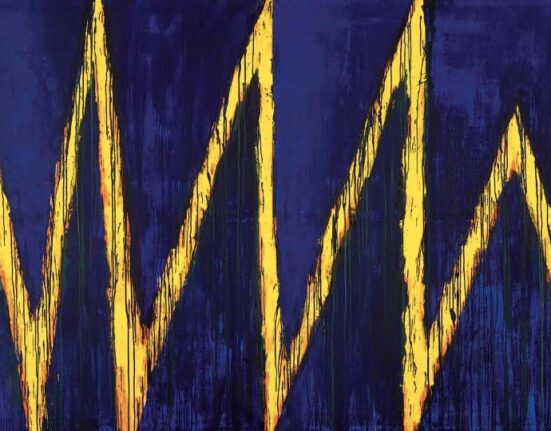Press play to listen to this article
Voiced by artificial intelligence.
BREAKING OVERNIGHT: ISRAEL AND HAMAS AGREE TRUCE DEAL
TEMPORARY CEASE-FIRE: Israel and Hamas have agreed a temporary truce agreement that would see the release of dozens of Israeli hostages held by Hamas and a pause in fighting in Gaza that could last four or five days. The agreement, which will take effect 24 hours after the announcement, would also see some Palestinian prisoners held by Israel freed. Nicolas Camut and Zoya Sheftalovich have the details.
Details: The breakthrough deal would see 50 women and children released by Hamas, in exchange for 150 Palestinian prisoners held in Israel. A four- to five-day pause in fighting would allow for the exchange to be completed safely, and for aid to enter Gaza. However, Hamas would continue to hold around 200 hostages. Israeli Prime Minister Benjamin Netanyahu’s office said the release of every 10 additional hostages would see one additional day added to the pause in fighting.
Not over: Speaking before a meeting of his Cabinet, which voted overnight to back the deal, Netanyahu vowed the war would continue after the hostages were released, saying: “We are at war, and we will continue the war until we achieve all our goals: eliminate Hamas, return all the hostages and missing, and guarantee that there will be no threat to Israel in Gaza.”
How it happened: My U.S. colleague Alexander Ward has an in-depth look at how the deal came about. It took five weeks of “excruciating” negotiations, with Netanyahu at one point telling a U.S. official: “We need this deal.”
**A message from Google: Artificial intelligence can significantly bolster climate-related adaptation and resilience initiatives. Our new report with Boston Consulting Group shows that AI has the potential to unlock insights that could help mitigate 5-10% of global greenhouse gas emissions by 2030. Learn more.**
MELONI-SCHOLZ MEETING
BUDGET CRISIS IRONY: German and Italian leaders will meet today amid a deepening government and budget crisis — yet this time that pain is in Berlin, not in Rome.
Welcome distraction: Italian Prime Minister Giorgia Meloni is traveling to the German capital, where officials are still reeling from the fallout of a bombshell Constitutional Court ruling that blew a €60 billion hole in Germany’s finances last week and forced the EU’s top economy to freeze its budget.
On the agenda: Both leaders will today tune in to a virtual G20 summit organized by India’s Narendra Modi — in which Russian President Vladimir Putin is expected to participate. Meloni and German Chancellor Olaf Scholz will also sign an “Italian-German Action Plan” for strategic cooperation this afternoon.
New German-Italian rapprochement: That action plan was first floated nearly two years ago, but put on ice when Meloni was elected — the Italian PM clashed with Scholz on migration. Those tensions have been smoothed over, with Germany adopting a tougher line on migration and Meloni rapidly being accepted by her European colleagues as a leader they can work with, Hans von der Burchard in Berlin and Hannah Roberts in Rome write in to report.
UNDER PRESSURE: The meeting also comes as member countries — led by France, Germany and Italy — are racing to agree on a reform of the EU’s joint debt rules. France and Italy have been pushing for more flexible rules that would grant governments more time to reduce their debt, to avoid brutal sudden cuts that would push them into austerity.
Enter Germany: But even Berlin is now under pressure to agree a reform, with interest rates climbing, the ECB calling for predictable rules and the European Commission warning that Germany’s 2024 budget is “not fully in line” with the EU’s debt rules.
Background: The old debt rules, which mandate rapid cuts for any country that has debts over 60 percent of GDP, are slated to kick in again starting January, but are seen as unrealistic following the COVID crisis and Russia’s war, during which most governments accrued large debts above that threshold.
F-grade on budget plans: The Commission on Tuesday warned that France, Belgium, Finland and Croatia urgently need to adapt next year’s budgets to fall into line with the rules, as Bjarke Smith-Meyer, Gregorio Sorgi and Giorgio Leali report.
Another irony: Germany, Austria, Luxembourg, the Netherlands and Italy were also warned their spending plans “are not fully in line” with the rules. Meanwhile, Spain, Greece and Ireland got the OK — a stunning reversal from the euro crisis a decade ago, when Portugal, Ireland, Greece and Spain were derided as the PIGS who could not pay back their debts.
Triangle of treaties: The German-Italian action plan — which seeks to establish closer cooperation on foreign policy, defense, energy and industrial policies as well as digital issues and science — aims to mirror similar Franco-German and Franco-Italian partnership treaties and thereby create a triangle of close allies at the EU’s center. Meloni and Scholz are also aiming for greater alignment ahead of EU summits, according to an Italian official.
RELAXING GERMAN DEBT RULES? Ahead of the Meloni visit, the German Cabinet will meet to decide on next steps following last week’s Constitutional Court ruling. Berlin may have to adopt a supplementary budget for this year and suspend the constitutionally enshrined debt brake. Such a decision could come as early as today.
Difficult choices: German Finance Minister Christian Lindner has long argued that he wants to uphold the debt brake. Yet the difficult financial situation following the ruling may leave him no other choice than to declare an “emergency” and ask for a debt brake suspension for this year, his own economic adviser Lars Feld wrote Tuesday. Remarkably, Lindner did not rule out such a move when asked by Hans on the sidelines of an event on Tuesday evening — but he stressed that he would apply “more restrictive” budget policies as of next year.
Reprioritizing the budget: Lindner also told the event that he “will find ways” to support the green transition of Germany’s economy next year, even if more restrictive budget practices were to apply by then. A variety of subsidies to bring down energy prices, support the green transition and finance the construction of microchip plants in Germany are in doubt following last week’s ruling, but Lindner said that he would “rearrange” the budget to find money for “priorities.” Nevertheless, “we cannot afford all subsidies,” he cautioned.
 |
HUNGARIAN CIRCUS, CONTINUED
ORBÁN UPS ANTE ON UKRAINE: In a letter to EU Council chief Charles Michel, Hungary’s prime minister has threatened to derail upcoming talks on Ukraine unless leaders agree to hold a strategic discussion on their policy toward Kyiv.
Raising the stakes: Orbán tells Charles Michel that such a discussion is “urgent” given the battlefield situation in Ukraine, adding that no decision on opening accession talks, financial aid for Ukraine or further Russia sanctions is possible until leaders consent to this “strategic discussion.”
Washington angle: Orbán further links Europe’s backing of Ukraine to the United States, asking if further support is warranted if Washington steps back its aid for Kyiv. “Can we take continuing support from the United States for granted? How do we conceive the security architecture of Europe after the war?” Orbán asks in the letter.
Step back: The Hungarian leader is ramping up tensions as he seeks to gain maximum leverage in a standoff with Brussels over €13 billion in EU funds for Hungary, which are currently blocked pending the Commission’s decision on rule-of-law reforms. According to one EU diplomat, Hungary has “booby-trapped” every decision pertaining to Ukraine with its threat of veto.
Another way? Some countries are already talking about ways to circumvent Hungary in the event that Budapest decides to use its veto on Ukraine, including by moving to bilateral deals for military aid. But the diplomat argued that such moves would undermine EU unity and might be premature.
Calling out BS: Despite Orbán’s assertion that the EU has had no strategic discussions on outcomes in Ukraine, papers and think pieces abound — including a draft paper from Europe’s diplomatic arm, seen by Jacopo Barigazzi, which delves into the EU’s security commitments vis-a-vis Ukraine.
STILL NO CASH FOR HUNGARY: Meanwhile, MEPs in Strasbourg on Tuesday discussed Hungary’s progress in tackling the threat to the rule of law and judicial independence in the country, urging the Commission not to release the frozen funds until Budapest has met all the set conditions.
Changes first: Many MEPs expressed concerns over the Commission’s rumored plans to release the money to Hungary in exchange for its support for Ukraine, a prospect they denounced as worrisome. But Justice Commissioner Didier Reynders reassured that funds “will not flow in the absence of necessary changes.”
‘Not for sale’: “Rule-of-law principles are not for sale, they are non-negotiable and cannot serve as bargaining chip,” said EPP MEP Jeroen Lenaers, who said further actions are needed before the Commission can unfreeze the funds. “Only significant, tangible, and lasting reforms can enable the release of taxpayers money.”
Hungary’s MEPs respond: Hungarian MEPs clapped back at Brussels, accusing the EU of trying to blackmail Budapest by withholding the funds. “The objective never was to reach an agreement, this is pure blackmail,” Balázs Hidvéghi, a Fidesz MEP, said. MEP Tamás Deutsch warned that Hungary “won’t dance” to Brussels’ music and will continue to protect its sovereignty.
**POLITICO’s Suzanne Lynch is going to COP28 – and so are you. POLITICO’s Global Playbook is our latest newsletter and your VIP pass to the event that will shape international climate policy, with reverberations across both continents and sectors alike. Never miss a beat from COP28 – sign up for Global Playbook here.**
TREATY CHANGE
DEBATE HEATS UP: Tensions boiled over in the European Parliament on Tuesday during a debate on proposed EU treaty revisions, a day before lawmakers are set to vote on the ambitious report.
Ch-ch-changes: The proposal, a joint effort of MEPs across the EPP, Greens, S&D, Renew and Left, includes multiple changes to the current structure of the EU, including removing vetoes by individual countries and replacing unanimity in the Council of the EU with majority voting.
Turn and face the strange: The goal is to strengthen the EU, according to the proposal’s rapporteurs, my colleague Claudia Chiappa reports. “The EP is taking a historic step forward,” said Green MEP Daniel Freund, one of the rapporteurs, adding that the proposal will “remove barriers that are holding Europe back.”
Rebel rebel: But while the proposed changes garnered significant support, they also triggered backlash from far-right lawmakers. Polish Law and Justice MEP Jacek Saryusz-Wolski called the proposal a “constitutional coup d’état” that will turn the EU into a “communist super state” while relegating member countries to mere regions.
Not a fan: His feelings were echoed by far-right Estonian MEP Jaak Madison, who called his colleagues “crazy federalists.” “Your job is useless, and you’re paid for useless work,” he told parliamentarians. “Congratulations for your voters.”
TOP JOBS
WHAT COMMISSIONERS DO NEXT: Over the past few months, with next year’s EU election approaching, a steady stream of European commissioners have headed for the Berlaymont’s exit door. But Mairead McGuinness says she isn’t going anywhere.
‘My absolute focus’: The Irish commissioner issued a statement quelling speculation in her home country that she would run in the European Parliament election, Suzanne Lynch reports. “I have one more year to serve in my role as EU Commissioner for Financial Services, Financial Stability and Capital Markets Union. This is my absolute focus for the next twelve months,” said McGuinness, who was a powerhouse in the EPP during her 16 years as an MEP.
Background: Two of the five sitting MEPs from Irish Taoiseach Leo Varadkar’s Fine Gael — Frances Fitzgerald and Deirdre Clune — have recently announced they will not run in 2024, opening up a scramble among party hopefuls to get on the ballot next June. McGuinness, who took over from Phil Hogan in 2020 after he was forced to resign over attending a golfing event during the COVID pandemic, has previously been rumored to be eyeing a run for the Irish presidency.
**Politics at Jack and Sam’s takes you into the room where U.K. politics happens, before it even happens – straight from their homes. Understand the implications of key political events in the week to come with this new weekly podcast. Get notified of new episodes here**
IN OTHER NEWS
FOREIGN MINISTERS’ NATO GATHERING NEXT WEEK: NATO countries’ top diplomats will be attending the foreign ministerial meeting next week. Speaking at POLITICO’s Pro Defense launch event Tuesday, British Ambassador to NATO David Quarrey said the ministers will focus on two seasons — this winter and the next summer.
Talking Washington and Kyiv: There’ll be discussion on the “high politics” looking ahead to the NATO Washington summit in July next year, he said, without losing sight on what he called the “trajectory” of the Russian war against Ukraine over the freezing months ahead. “We know that the Russians will come after Ukraine’s critical national infrastructure again this winter,” Quarrey told Josh Posaner. “So I’m sure ministers will want to talk about how we are providing support there.”
QATARGATE LATEST: In January, Belgian authorities issued a national notification for the arrest of the Qatari labor minister, his aide, and Morocco’s ambassador to Poland — according to Belgian police reports seen by POLITICO — as part of the investigation into the Qatargate corruption scandal. But the notifications were abruptly rescinded later that month. Elisa Braun digs into the on-again, off-again hunt for the men accused of corrupting the European Parliament.
DUTCH ELECTION UNDERWAY: Polls have opened in the Netherlands’ knife-edge election, with the big surprise a sudden surge in support for the far-right party of Geert Wilders, Eline Schaart reports. You can stay up to date with the results after polls close on Wednesday evening with POLITICO, and your favorite morning newsletter will of course have the latest on the election on Thursday morning.
PFIZER SUES POLAND OVER VACCINE DOSES: U.S. pharmaceutical giant Pfizer is taking the Polish government to court over missed COVID-19 vaccine payments, according to Gazeta Prawna. The civil suit concerns 60 million doses of the BioNTech/Pfizer jab that Poland ordered but never paid for.
MEANWHILE, CROSSWINDS HIT POLAND’S AIR HUB: A project to build one of Europe’s largest airports in the middle of Poland is in danger as Donald Tusk’s government-in-waiting pledges to take a hard look at schemes promoted by the outgoing right-wing Law and Justice party. Wojciech Kość and Mari Eccles have the details.
LESSONS FROM UKRAINE TO GAZA: In an opinion article for POLITICO, Ross Burley, co-founder and executive director of the Centre for Information Resilience, warns against the rise of amateur open-source investigators on platforms such as Elon Musk’s X, who are sharing inaccuracies about the wars in Ukraine and Gaza.
AGENDA
— G20 leaders summit via video conference. Both Commission President Ursula von der Leyen and Council President Charles Michel participate.
— NATO Secretary-General Jens Stoltenberg continues trip to Western Balkans. Participates in meeting with Allied leaders from the region; Albanian Prime Minister Edi Rama, Croatian President Zoran Milanović, Slovenian Prime Minister Robert Golob and Prime Minister of Montenegro Milojko Spajić invited to attend. Joint press conference at 11:40 a.m. Watch.
— European Parliament plenary session continues in Strasbourg. Highlights: Gaza debate at 9 a.m. … press point by the Parliament President Roberta Metsola and Bulgarian Prime Minister Nikolay Denkov at 10:20 a.m. … address by Denkov at 10:30 a.m. … Debate on threat to rule of law in Spain at 2 p.m. Agenda. Watch.
— EU member countries’ deputy permanent representatives meet in Coreper I at 10 a.m.
— Press conference by Environment Commissioner Virginijus Sinkevičius and Climate Action Commissioner Wopke Hoekstra on the forest monitoring framework at 1 p.m. Watch.
— Press conference on proposals of the Parliament for the amendment of the Treaties by co-rapporteurs Guy Verhofstadt, Sven Simon, Gabriele Bischoff, Daniel Freund and Helmut Scholz at 3 p.m. Watch.
— Energy Commissioner Kadri Simson is in Maputo, Mozambique; delivers a keynote speech at the Opening ceremony of the Mozambique-EU Global Gateway Investment Forum … meets President Filipe Nyusi … meets Energy Minister Carlos Zacarias … delivers a speech via videoconference at European Hydrogen Week 2023.
— Cohesion and Reforms Commissioner Elisa Ferreira receives Polish Development Funds and Regional Policy Minister Grzegorz Puda … receives United Nations Under Secretary-General and UNOPS Executive Director Jorge Moreira da Silva.
— Neighborhood and Enlargement Commissioner Olivér Várhelyi also receives Jorge Moreira da Silva.
BRUSSELS CORNER
SCHUMAN ROUNDABOUT WORK: The renovation of the Schuman roundabout kicked off this week — but there are still people who want to stop it. “The European Quarter is one of the ugliest neighborhoods in Brussels and we don’t want it to go any further. We want an end to the Brusselization,” said Marco Schmitt, president of the Quartier Léopold Association, one of the neighborhood committees that opposes the redevelopment. Another association, GAQ, started a petition.
What’s Brusselization? The urban planning policies from the 1960s and 1970s that introduced skyscrapers in historical neighborhoods, without consideration for residents, have become known as Brusselization. Critics say the redevelopment of Schuman will not close the gap between residents and EU office buildings, and their aim is to suspend the works.
Everyone’s a comedian: DG Meme reveals the excavation of the roundabout has unveiled an ancient temple dedicated to the EU founders. Others claim the redeveloped Schuman will serve as a docking station for the Europa building’s Space Egg.
CATCHING CATS: Brussels is introducing a geocaching game through the historic center of the city with digital art and light sculptures. The game involves finding small luminous cats hidden along a designated route. The player with the highest score will be rewarded with a miniature cat sculpture. Starts today and available until December 31.
P!NK IN BELGIUM: Pop star P!NK will perform in Belgium on July 14 for her Summer Carnival World Tour. Tickets go on sale this Friday at 10 a.m.
THE ART OF NOTHING: A new exhibition, “L’art de rien,” opens on Thursday at Centrale, and showcases art made by reusing discarded everyday objects.
BRASSERIE CHAPEAU BLANC: The popular Brasserie Chapeau Blanc in Anderlecht, founded in 1890, has reopened. It closed during the COVID-19 pandemic.
MAGRITTE BAR: A new bar located within Hotel Amigo dedicated to the works of surrealist artist René Magritte opened on Tuesday, marking the artist’s 125th birthday. The cocktails are inspired by Magritte’s most famous artworks.
BLOOD DONATION: Red Cross Belgium is urgently looking for blood donors ahead of Christmas, in anticipation of people leaving town for the holiday. “We are currently only able to respond to 50 percent of hospital requests in negative groups … Without swift action and massive mobilization of donors with a negative group, the situation will continue to deteriorate week by week,” the press release notes.
NEW JOB: Tom Meulenbergs is the new communications director for Belgium’s Foreign Minister Hadja Lahbib, who will be a key figure during Belgium’s upcoming EU Council presidency. Meulenbergs worked for years as spokesperson and communications director for Prime Minister Alexander De Croo, a role he left in September.
QUESTION FOR CARNEY? For an upcoming episode of our Power Play podcast, host Anne McElvoy will be interviewing Mark Carney, the U.N. special envoy for climate action and finance, before he heads to COP28 in Dubai. Submit any questions you might have for him here by 4 p.m. CET on Thursday. The full interview will be out on November 30, here.
BIRTHDAYS: European Economy Commissioner Paolo Gentiloni; MEPs Sándor Rónai, Ska Keller and Olivier Chastel; Former MEP Sophie Montel; Austrian politician Elisabeth Köstinger; Katrina Murray from the Australian Department of Foreign Affairs and Trade; Lydie Polfer, mayor of Luxembourg City; European Parliament’s Stijn Teeuwen; Spotify’s Eleanor Flanagan Baelus; U.S. Ambassador to the U.N. Linda Thomas-Greenfield; U.S. Ambassador to the Netherlands Shefali Razdan Duggal.
THANKS to Hans von der Burchard, Claudia Chiappa, Nicholas Vinocur, Jacopo Barigazzi, Carlo Martuscelli, Suzanne Lynch, Playbook reporter Ketrin Jochecová, editor Jack Lahart and producer Seb Starcevic.
**A message from Google: Delivering improved predictions to help adapt to climate change is one of three key areas where we’re developing AI to accelerate climate action. Floods are the most common natural disaster, causing thousands of fatalities and disrupting the lives of millions every year. Since 2018, Google Research has been working on our flood forecasting initiative, which uses advanced AI and geospatial analysis to provide real-time flooding information so communities and individuals can prepare for and respond to riverine floods. Our Flood Hub platform is available in more than 80 countries, providing forecasts up to seven days in advance for 460 million people. Learn more here about how we’re building AI that can drive innovation forward, while at the same time working to mitigate environmental impacts.**
SUBSCRIBE to the POLITICO newsletter family: Brussels Playbook | London Playbook | London Playbook PM | Playbook Paris | POLITICO Confidential | Sunday Crunch | EU Influence | London Influence | Digital Bridge | China Watcher | Berlin Bulletin | D.C. Playbook | D.C. Influence | All our POLITICO Pro policy morning newsletters







